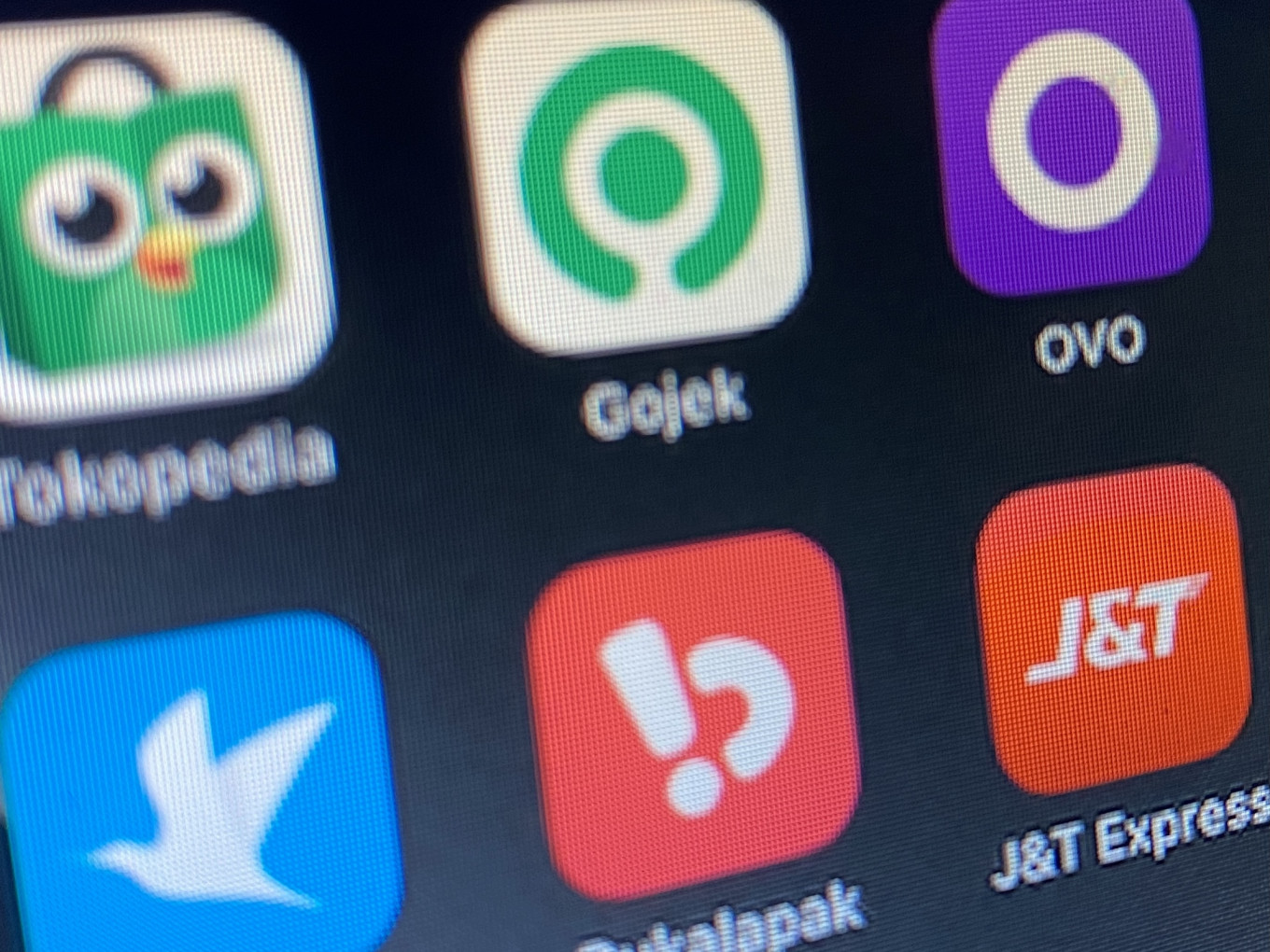Corporate tech investing enters prime time
Not only are more Indonesians becoming digital consumers for the first time, each customer now uses more products in more verticals.
Change Size

I
f you set aside mergers for a moment, Indonesia has twelve tech unicorns — companies with valuations worth of US$1 billion — as of the third quarter of 2021. What is even more amazing is that seven out of these 12 companies reached unicorn status only this year.
In previous years, Indonesia already boasted Gojek, Tokopedia, Bukalapak, Traveloka, and OVO as its homegrown tech giants. Then came 2021, and with it a slew of new tech companies announced their own unicorn status: Kredivo (FinAccel), JD.ID, Blibli, Tiket.com, Ajaib, Xendit, and J&T Express.
Although Gojek and Tokopedia are now technically one company and Blibli acquired Tiket.com a few years ago, the fact that twelve startups managed to climb their way to the billion – or multi-billion-dollar club in a relatively nascent tech market is an impressive feat unto itself. It’s also a testament to the promise of the local market.
Less than a decade ago, there were no billion-dollar tech companies in the archipelago. In fact, in 2011, only 13 percent of adults in the country had some form of internet access (for comparison, this statistic was 64.8 percent in 2020). The country’s first digital business revolution took place because the market was ripe for e-commerce.
In the late 2000s and early 2010s, the first online marketplaces launched with relative quiet. From this initial cohort came the first crop of unicorns. Both Bukalapak and Tokopedia are now household names and became lauded as homegrown success stories less than a decade later.
But even as those two players dominate the e-tail market, fresh giants are still emerging and succeeding in the exact same way, with the exact same model: Blibli and JD.ID both rank among Indonesia’s top ten e-commerce sites.
Indonesia already had a young population and growing middle class, both of which we all know are big drivers for digitalization. But e-commerce was also the tugboat that ushered in a torrent of adjacent internet sectors. Consider that the value of Indonesia’s e-commerce market was just a mere $2 billion in 2015, but swelled exponentially to $32 billion by 2020, just five years later.
The country’s well-oiled demand for online shopping then received a steroid injection when COVID-19 hit. This also, in effect, stirred activity in other highly interlinked areas like logistics and digital payments.
Today, the local tech market is primed again and we’re seeing a second wave of valuable e-businesses, more accelerated and more plentiful. Its rapid clip is driven by a variety of factors. C0VID-19 has no doubt accelerated digitalization across the board in Indonesia. From the start of the pandemic to the first half of 2021, the nation racked up 21 million new digital consumers. 93 percent of these people intend to keep using digital services even after the pandemic.
According to the Google-Temasek-Bain eConomy SEA 2021 report, the headline story of Southeast Asia right now is mass-market tech adoption.
Not only are more Indonesians becoming digital consumers for the first time, each customer now uses more products in more verticals. Across the board, from ride-sharing to food delivery to e-commerce, online travel, games, and more, each vertical has achieved between 51 percent and 74 percent unique customer growth throughout the pandemic. The numbers illustrate that tech is now undeniably mainstream as a result of C0VID-19, and it’s here to stay.
Another factor is the increasing investment appetite in the region for tech startups. Despite COVID19, the report also says that Indonesian startups still clocked $4.4 billion from investments during 2020, similar to 2019. Then, in the first half of 2021, another $4.7 billion poured in, and the jury is still out on the overall invested capital for the entire 2021.
Last but not least, the nation’s state-owned enterprises, with a thriving state-owned digital ecosystem, are actively adding fuel to an already roaring fire.
This comes in the form of a blossoming SOE-owned corporate venture capital (CVC) industry. For example, Telkom Indonesia-backed MDI Ventures closed a $500 million fund just last year, and BRI Ventures, the CVC arm of Bank BRI, has made 15 investments since its launch in 2018.
For local corporates, SOEs included, the reason behind this is simply that real working partnerships between corporates and tech startups are starting to bear fruit. Aside from simply putting cash into startups, corporates are realizing the tangible value of working directly with smaller, agile operators with a greater risk appetite.
Incumbents know they need to be active on this front. For example, since 2016, Tokyo-listed IT services company Infocom Corporation and Silicon Valley’s Fenox Venture Capital have been running GnB Accelerator in Indonesia. Even companies that do not run accelerator or incubator programs themselves are also often deeply involved in nurturing startups for success. Astra, Sinarmas, and Bank Negara Indonesia partnered with Plug and Play Indonesia, an accelerator program conducted by investment company Gan Kosulindo, to provide mentorship and coaching for startups.
MDI Ventures is an old hand in the incubator and CVC game. It operates Telkom’s Indigo Incubator, from which dozens of startups have graduated. Some went on to achieve valuations north of $100 million. MDI also actively orchestrates business development opportunities between startups, Telkom Group, and other SOEs.
Moving into a new golden age, I advise owners and operators of corporates to not miss the opportunity of realizing tens of millions, if not billions, in returns by starting your own CVC vehicle. These firms, when operated by seasoned VC professionals who understand Indonesia’s already proven tech scene, can channel corporate funds to the most promising startups.
Further, CVC is a perfect bridge to new business opportunities, new partners, and potential acquisition targets. These are relatively mature companies, which have made it through the early- and mid-stage challenges and proved their worth.
***
The writer is chief executive officer of MDI Ventures, a multi-stage venture capital arm of an Indonesian telecom company









